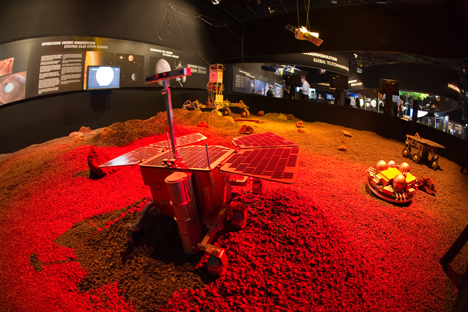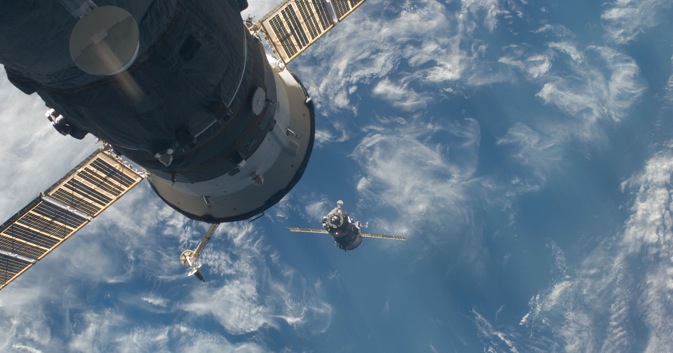International Cooperation key to progress in Space

ExoMars interplanetary mission project envisions two Russian-European missions to Mars in 2016 and in 2018. Source: ESA
Roscosmos chief Vladimir Popovkin and his European Space Agency (ESA) counterpart Jean-Jacques Dordain have recently signed a partnership agreement on the ExoMars interplanetary mission project. ExoMars envisions two joint Russian-European missions to Mars, in 2016 and 2018. “The partners have agreed a balanced sharing of responsibilities for the different mission elements,” the ESA reports. Russia will be responsible for the launches, both using Russian carrier rockets.
In 2016, an atmospheric gas analyser will be sent to the red planet and, two years later, a rover will be delivered to Mars. “This confirms once again that projects of such a tremendous scale have to be implemented through international cooperation. The scientific data we will obtain during all the planned missions are important for the worldwide community,” Popovkin said during the signing ceremony. European scientists had planned to launch ExoMars seven years ago but the project has been postponed several times.
Some believe the Russians saved the project. “ExoMars faced a big challenge when NASA withdrew from the project but the Europeans invited Roscosmos to participate and the project became operational,” says Dmitry Baranov, senior expert at Finam Management.
Despite financing difficulties, the ESA has an even more ambitious space project in mind than Mars: the agency’s top priority is Jupiter. In 2022, the Europeans plan to launch a robotic probe to that planet. The JUICE mission (Jupiter Icy Moons Explorer) is the ESA’s most expensive project to date, involving 500 scientists from 17 countries. Russian specialists will be engaged in Jupiter exploration, too: Roscosmos is planning to create a space vehicle to land on Ganymede, one of Jupiter’s moons, and work together with the European satellites. American and Japanese specialists are engaged in the project alongside Europeans and Russians. Experts appreciate the cooperation of increasing numbers of countries in space projects. “The main benefit of international cooperation is that the leading nations have reached an understanding that large projects should be implemented in cooperation, not only because of high costs but also because such projects can attract the best minds for developing and implementing such programmes,” says Baranov.
Related:
ESA, Roscosmos chiefs sign agreement on cooperation in Mars exploration
Russia takes a two-pronged approach to space exploration
Besides missions to distant planets, international teams of scientists are working on telescopes and observatories to replace the Hubble Space Telescope, whose operating life will end in 2014. Among the possible successors is the World Space Observatory-Ultraviolet, which is planned to be launched in 2016 to a 35-kilometre orbit. Ground control and data processing centres are likely to be established in Russia and Spain. “The station is expected to be fully operational for at least five years but it may work longer. There are examples of American stations that have been in operation for nineteen years instead of the planned five,” says a source at the Astronomy Institute of the Russian Academy of Sciences.
Not to lag behind in space, the Russian authorities are injecting big money into the space programme. The adopted space exploration programme for 2013-2020 is to cost an estimated $60 billion. Many countries follow suit and boost financing of their space enterprises, so experts do not expect changes in the rankings of the space powers in the next few years. “Russia is the acknowledged leader in global cosmonautics in terms of the number of launches and it is unlikely that it will lose its leadership. When it comes to global rankings, not only Russia but also the US, France, the EU and Japan will likely remain leaders, with no major challengers. Nevertheless, new space powers, including China, Brazil and Iran will continue developing their space industries. However, there is still a long way for them to go to catch up with the leaders, so the ‘correlation of forces’ in the sector will remain virtually unchanged in the years to come,” Dmitry Baranov says.
All rights reserved by Rossiyskaya Gazeta.
Subscribe
to our newsletter!
Get the week's best stories straight to your inbox
